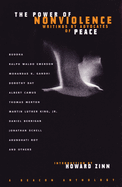 The fourteenth chapter of The Power of Nonviolence: Writings by Advocates of Peace contains Thomas Merton‘s 1962 essay The Root of War is Fear. As we have seen in the essays by Muste, Day, Addams, Gandhi, and Penn, religious conviction can be a great motivator to speak out for pacifism. Adopting the contemplative life of a monk, seems to have propelled Merton outward into addressing war and violence.
The fourteenth chapter of The Power of Nonviolence: Writings by Advocates of Peace contains Thomas Merton‘s 1962 essay The Root of War is Fear. As we have seen in the essays by Muste, Day, Addams, Gandhi, and Penn, religious conviction can be a great motivator to speak out for pacifism. Adopting the contemplative life of a monk, seems to have propelled Merton outward into addressing war and violence.
The title of Merton’s essay remind me of what the Duchess always says, “That which is not love, is fear.” Like Fromm’s essay of the prior week, Merton diagnoses the especially American idea that the only way to peace is through nuclear war as being a form of mental illness.
Merton immediately questions what is a Christian to do in a world where violence is considered to be the only answer. He quickly turns aside the choices of resigning oneself to the inevitability of the situation, using it as a reason to preach Apocalypse, or celebrating a nuclear victory over Atheist Communism. Merton finds there is only one appropriate response for a Christian:
That task is to work for the total abolition of war.
